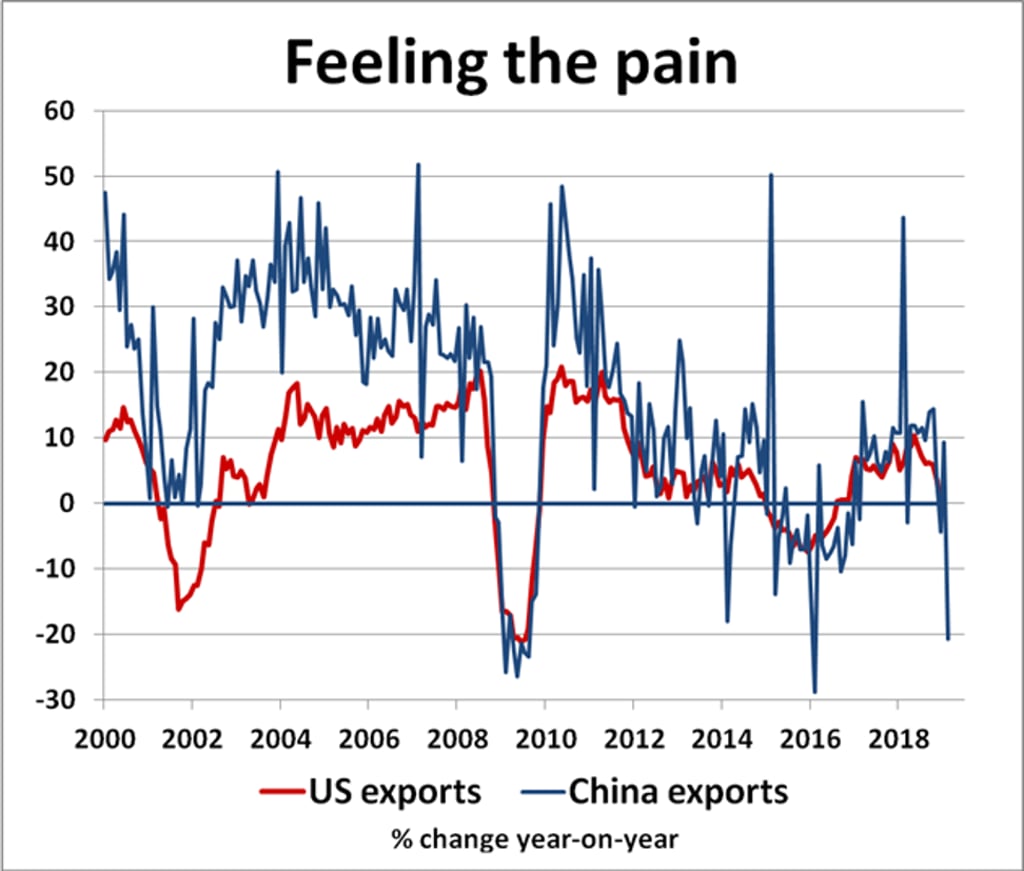Advertisement
The US and China must end their trade war so the world can work together to restore economic order
- From out-of-control US deficits to Europe’s sluggish growth and China’s over-reliance on exports, the world has problems it will take cooperation to address, and the trade war is a big distraction
Reading Time:3 minutes
Why you can trust SCMP

Enough’s enough. It’s time to bury the hatchet and put trade hostilities to rest. China and the US have too much in common to risk further damage to their national economic health.
It is time to settle their differences over trade amicably and get on with the business of restoring order to the global economy. They owe it to themselves and the rest of the world, or else we could be staring down the twin gun barrels of a global trade recession and another financial crash.
China and the US have been playing with fire for too long and both sides risk getting their fingers burnt unless trade tensions are defused very quickly. Global trade growth is slowing sharply, with the row backfiring badly on both economies. US export growth has slowed while China’s latest trade data shows dollar-denominated exports in February falling 20.7 per cent from a year ago. It is hurting growth, hitting jobs and harming global financial confidence.
Advertisement
It simply inflames a situation that the International Monetary Fund and Organisation for Economic Cooperation and Development have warned about for years. Growing trade imbalances have posed a major threat to global stability for decades and resolving it will require a lot more than a token trade deal between China and the US in the coming weeks.
A long-lasting pact which has real meaning is one thing, but the bigger challenge is that the major economies still need to rebalance macroeconomic policies to ensure sustainable growth in future.
Advertisement
China has already committed to rebalancing economic growth, away from its long-term dependence on export-led expansion to growth based on domestic demand regeneration. Improved tax incentives, deficit spending on key infrastructure projects, stimulating structural reforms, boosting consumer confidence and opening up the economy to foreign investment and imports should be cornerstones of the new policy renaissance in China. Critically, domestic growth can flourish at the same time that China is still making a bigger net contribution to global growth.
Advertisement
Select Voice
Select Speed
1.00x

